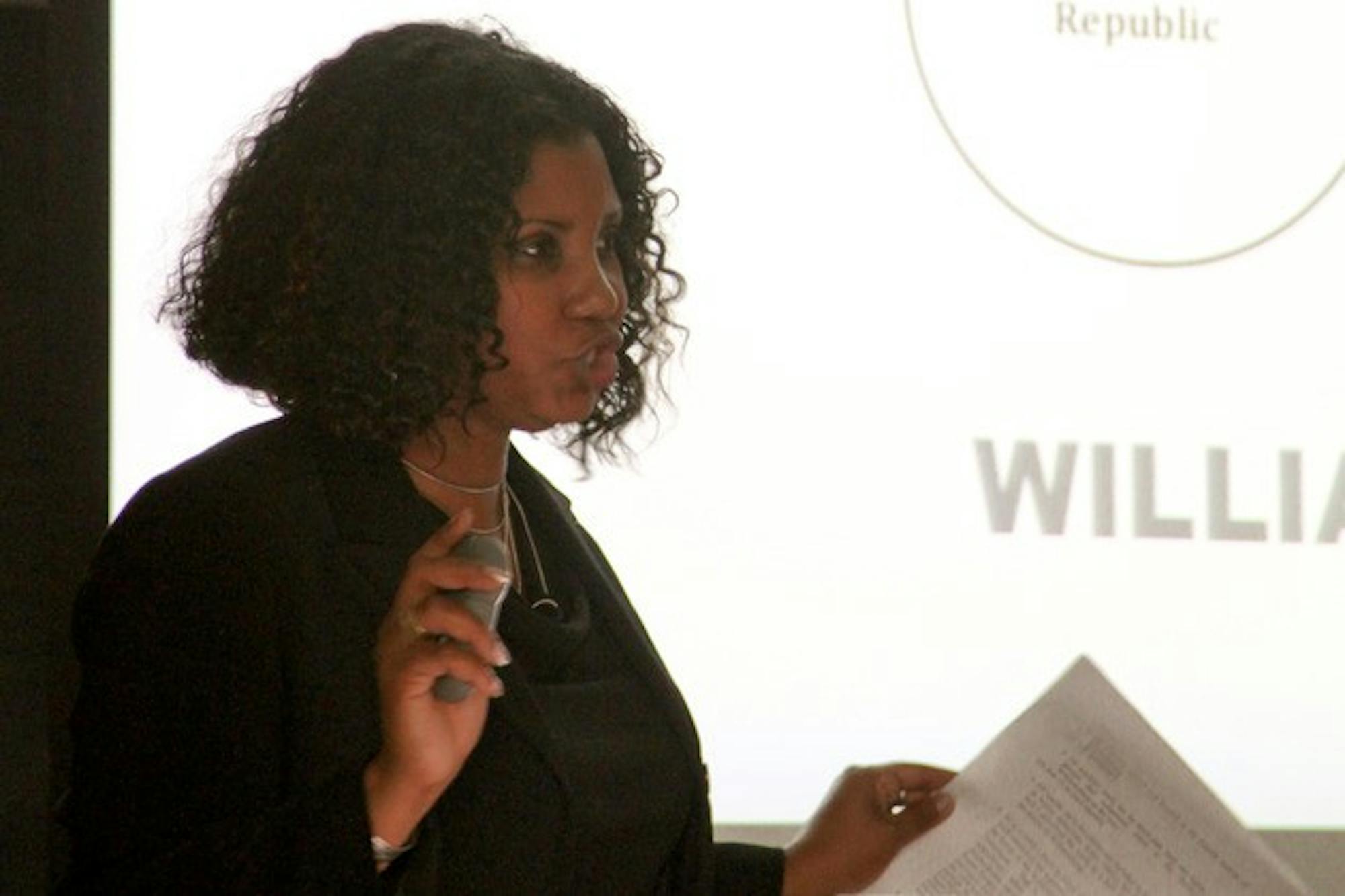Rosario's novel takes place in her native country, the Dominican Republic, a place she said is defined by its reliance on trade and commerce. Rosario said the most disturbing part of her research for the book was the discovery that the country was created to engage in commerce and to produce commodities for Europe.
When discussing the complexities of her own identity, Rosario used the analogy of a Venn diagram due to its many overlaps and intersections. Rosario said her novel fits into a Venn diagram model as well, as her book is sometimes shelved as history, and other times as Latino literature.
"A book is multi-layered," she said. "You can read it through whatever lens is meaningful to you. Someone can read it through a religious lens, someone can read it through environmental lens, a political lens."
Rosario said she incorporated her own personality and experiences into many of the novel's characters.
"I'm everything in the novel," she said. "As a writer, you're a psychologist and an actor. You have to find the humanity."
Rosario said she first became interested in her origins and how the past dictates both present and future while studying engineering as an undergraduate at the Massachusetts Institute of Technology. Rosario found herself spending less time on her classes and more time in the library trying to find books to help her determine her identity, she said.
"I was eating up the library, often at the expense of my grades," she said. "I would go to the library, then I would go to hydrology. They were very different processes."
After reading many different books on various topics, Rosario said she was still disappointed by the lack of similarity between herself and the characters.
"I still didn't see myself," she said. "I said, You watch, I'm going to have to write a book.' They thought I was kidding but I was frustrated because even after reading all these books I didn't see myself."
Rosario started going to workshops where she met emerging authors and poets with whom she shared her writing, she said. In her senior year of college, she took a writing workshop in which a professor gave her harsh criticism that forced her to choose making writing a career, or abandon it completely.
"She said, If you're going to do this, take it seriously,'" Rosario said. "So I took it seriously. I listened to her and when I graduated I started taking classes at the Frederick Douglass Creative Arts Center and I spent two years taking courses and slowly understanding what it was I was trying to say."
Rosario enrolled in a Master's degree program at Columbia University where she learned about literary theory and continued working on her novel. Rosario said she found that skills and lessons she learned as an engineering student at MIT were useful because she had an understanding of how to construct a story, while her classmates took a much more theoretical approach.
As a research assistant to author Beverly Lowry, Rosario said she learned how to make a novel come alive and how to create literature.
"It's all in the details," she said. "You use these little details that you don't think are important but they really bring alive a work of fiction."
Rosario said her inspiration comes from many different novels, including "Delivering Views: Distant Cultures in Early Postcards," edited in 1998 by Christraud Geary and Virginia-Lee Webb.
"This book helped me write my prologue," Rosario said. "In this book there was a Nigerian schoolteacher named Graciela, [and that became] the name of the character in my book who ended up suing an Italian missionary who had made a postcard out of her wedding picture."
Rosario read the prologue of her novel at the conclusion of the lecture. The book begins with a young Dominican couple in conversation with an American traveling in the Dominican Republican in 1916.
Rosario said that the book has been received poorly by writers in the Dominican Republic because she does not actually live in the country and thus is not considered to have the authority to write on the subject. In the Caribbean at large, the book has been well-received, she said.




